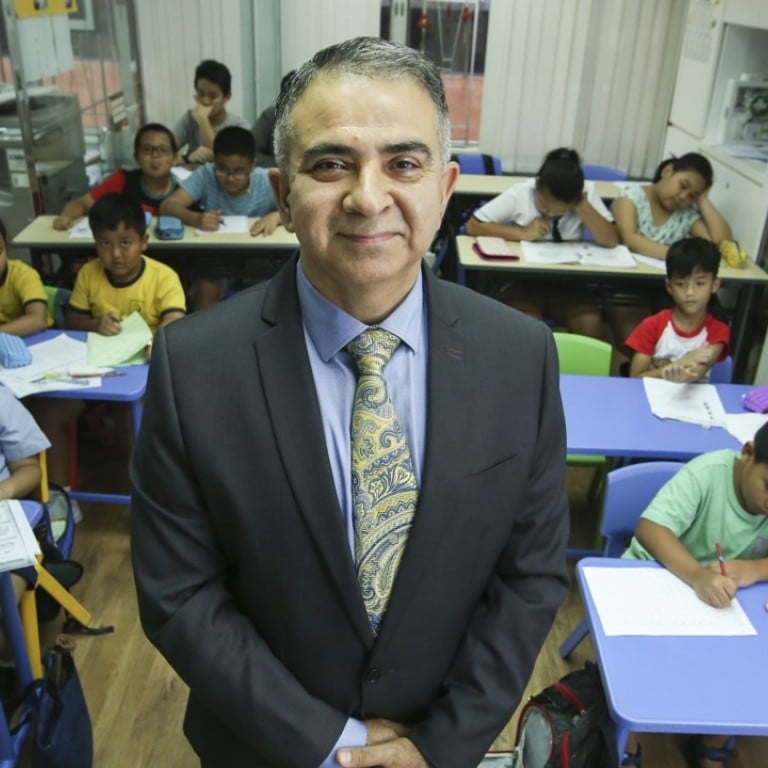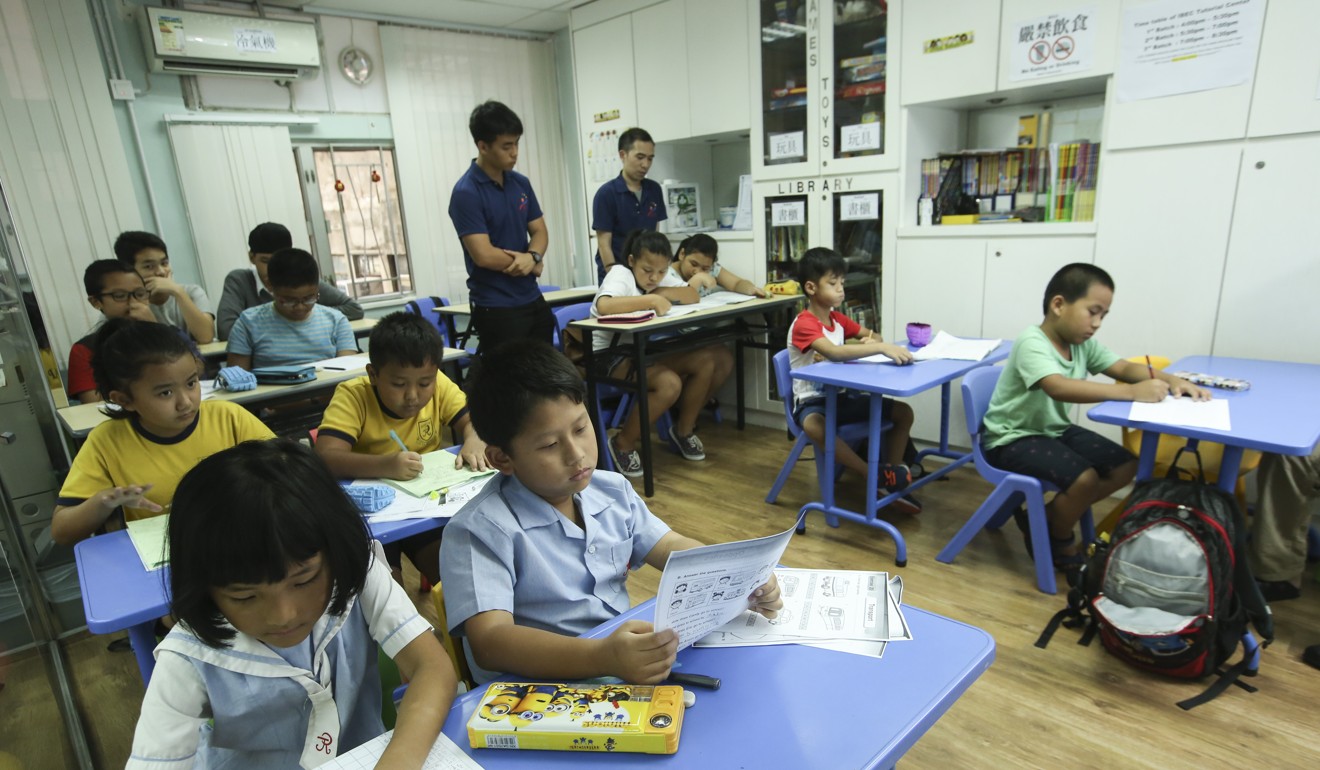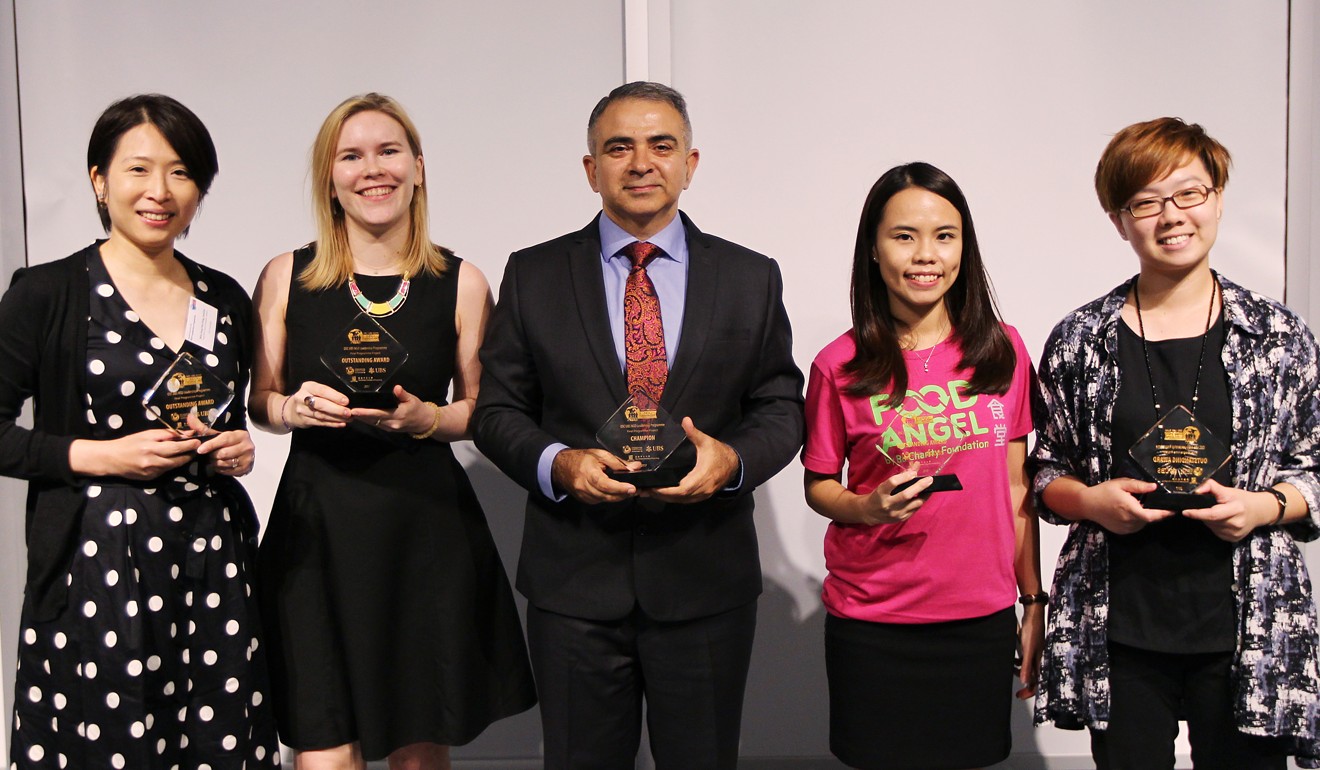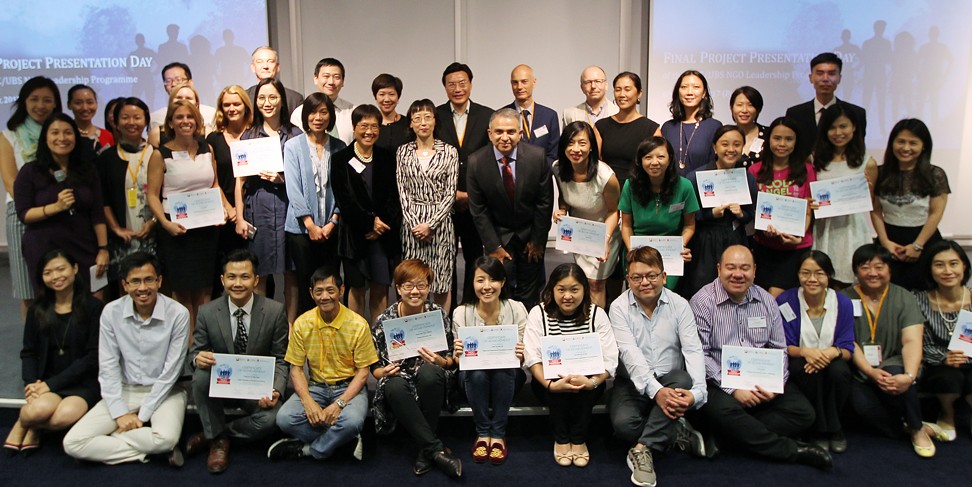
Former banker and businessman starts tuition centre for Hong Kong minorities
Manoj Dhar from India believes that if children from foreign countries can pick up Chinese, they will make more progress in city
Ethnic minority children living in Sham Shui Po are set to receive affordable Chinese language tuition, as part of a charity grant offered to businessman turned educator Manoj Dhar.
Dhar moved to Hong Kong in 1999 and, over the years, was struck by the prevalence of ethnic minorities in lower-skilled jobs. He worked in the banking industry before starting a sports apparel business six years ago.
He said he recalled learning about the alarming drop-out rates of minority students from mainstream local schools, which mostly teach in Chinese. In 2014, Dhar co-founded the Integrated Brilliant Education Trust, an ethnic minority education support centre in Jordan.

The 51-year-old was recently awarded a grant of HK$800,000 for his centre, which he will use to set up a second facility in Sham Shui Po.
The grant is part of a six-month NGO leadership programme jointly offered by UBS and Operation Santa Claus. The latter is an annual fundraiser organised by the South China Morning Post and RTHK.
A year ago, Dhar, who had transitioned from banking into selling sports apparel and equipment, left the daily operations of his five-year business to work full-time on his centre.
Soon after that, he enrolled in the programme, which is supported by Chinese University’s social work department. A total of 70 NGO managers have been trained under the course, now in its third year, including 22 managers who completed it this year.
On Friday, among 20 proposals presented by course participants, Dhar clinched the HK$800,000 grant under the programme, with his plan for a tuition centre for poor ethnic minority children in the district, which has the highest poverty rate in Hong Kong.
“We noticed a consistent pattern that all these kids were ... stuck in the same [low-end jobs],” Dhar said.
Minority residents ask Hong Kong leader Carrie Lam to address inequality concerns
At his current 1,200 sq ft tuition centre in Jordan, 105 pupils from kindergarten to Form Three attend classes with an average monthly fee of HK$900. The centre, which offers five classes daily, spends HK$2,400 monthly on each pupil, according to Dhar.
Dhar said his school, which is a registered charity, had been relying on donations – and his own money at first – to cover costs, which included rent and teachers’ salaries.
“A small success is that some [of our] kindergarten graduates are getting into the primary schools they want and some older pupils are doing well enough to receive certificates from schools,” he said.
With the grant, Dhar hopes to replicate the results in Sham Shui Po, a West Kowloon district home to more than 9,500 people from ethnic minorities, and near four other districts with 63,000 more.
“Why Sham Shui Po? Because it’s the poorest district in Hong Kong and from the Education Bureau reports I have seen, the number of ethnic minority children in primary and secondary schools there is the highest,” he said.
A 2016 population by-census of Hong Kong showed that 8,056 children from the Philippines, Indonesia, India, Nepal, Pakistan, Thailand and other parts of Asia – excluding China and Japan – were in primary schools.
Meet the ethnic minorities breaking through Hong Kong’s race barrier
The number dropped to 3,493 in high schools and 2,313 in tertiary institutions. Those 5,806 youngsters accounted for just 30 per cent of all the city’s young people aged 15 to 24 from the listed countries.
In contrast, the proportion of Chinese youth in this age group who were in high schools and tertiary institutions was more than 73 per cent.
Dhar said he believed that the earlier ethnic minority children received help learning Chinese, the faster they could master the language and perform better academically.

“After 10 to 12 years of schooling, they can actually be an asset to Hong Kong society and the workforce,” he said.
Amy Lo Choi-wan, head of wealth management of UBS Greater China and one of the mentors in the leadership progamme, said Dhar’s proposal won mainly because it was “impactful”.
“Ethnic minorities are in a segment in need of help but they are not a focus of government assistance,” Lo said, adding that the panel of five judges was also impressed by Dhar’s devotion to his young organisation.
She said the community service committee of UBS would transfer the award money to Dhar by instalments and further discuss with him how to reduce operating costs.


